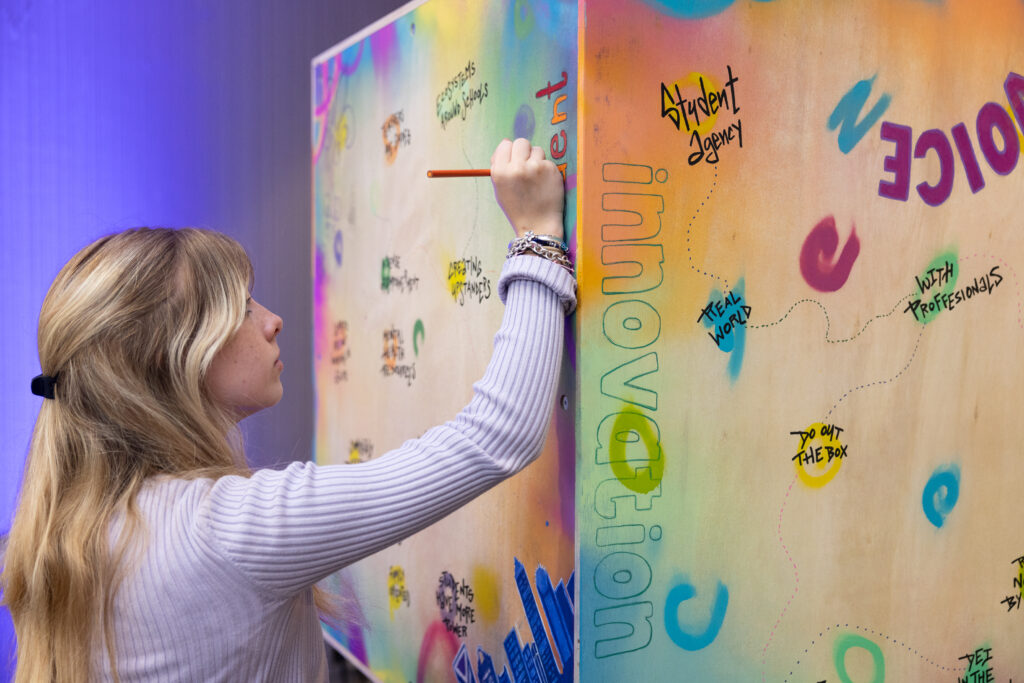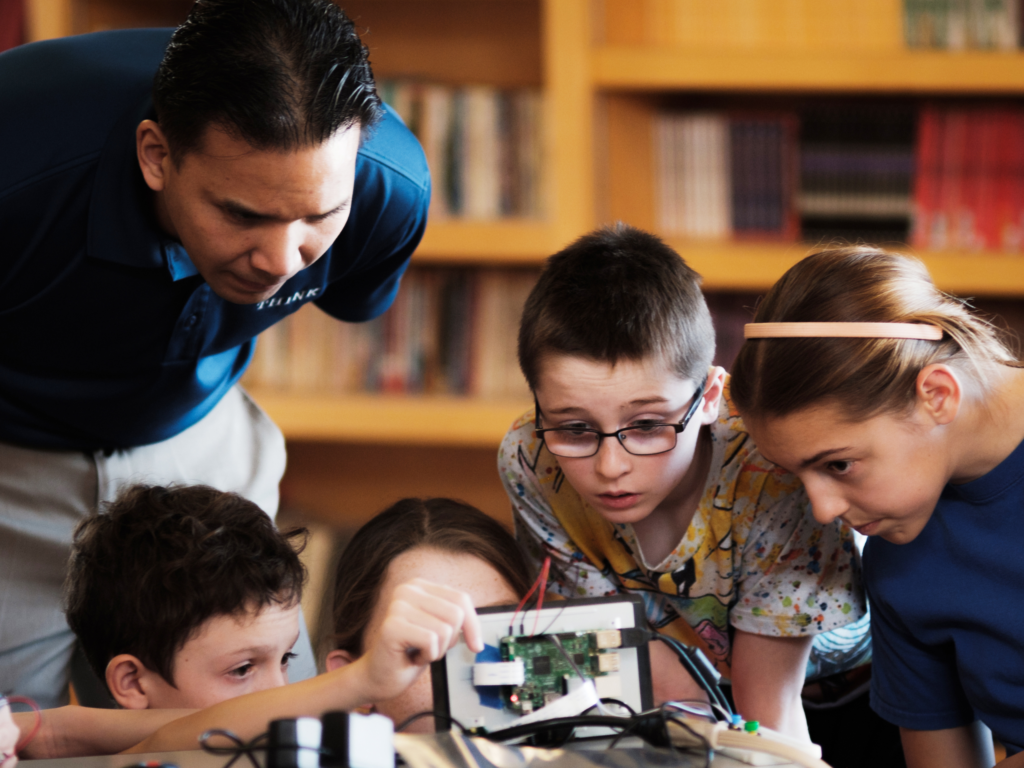An Interview with Komal Dadlani, Co-founder and CEO of Lab4U, on getting into classrooms early and often to build a great product
We recently released an insight brief on what we’re learning from three years of ed tech investing. In the brief, we identified three consistent patterns we observed across all of our ed tech investments.
This three-part blog series is intended to give readers an in depth look at how ed tech entrepreneurs are tackling the most challenging opportunities in the field today, and how entrepreneurs can position themselves on the path to success, too.
 NewSchools: Though Lab4U, you’ve provided ed tech lab instruments to classrooms across multiple countries around the world. What have you learned from implementing ed tech in so many different classrooms and contexts?
NewSchools: Though Lab4U, you’ve provided ed tech lab instruments to classrooms across multiple countries around the world. What have you learned from implementing ed tech in so many different classrooms and contexts?
Komal Dadlani: We have worked primarily with teachers in Latin America (Chile, Mexico) and in the United States. Lab4Physics has reached more than 100K users across these countries. In spite of radically different contexts, levels of infrastructure, per-pupil spending, etc., we noticed some common threads that unite the experiences of teachers across countries. In general, teachers are highly motivated and looking for ways to innovate. They work hard to ensure their students have access to the best opportunities in life. But they’re also overworked, have little free time and/or have limited resources. Teachers are generally looking for tools that engage their students in new ways that go beyond learning standards, and allow students to develop 21st century skills. But they’re also looking for tools that are easy to use which they can incorporate into the classroom. Teachers might have very different spending power in Sinaloa, Mexico compared to New York, but many of their underlying concerns are the same.
NewSchools: How have you modified your approach to address what you learned?
Komal Dadlani: In our implementations in Mexico, Chile, and the United States, we’ve had lots of opportunities to work with teachers from different cultures and contexts. Public, private, charter, and charter-equivalent. Some of the approaches we’ve developed based on our work with teachers in different contexts include:
- Communities of practice.
Teachers often learn best from other teachers. It’s important to create spaces where teachers from different schools and contexts can connect to discuss the use of tools in their classrooms. - Using offline mode and keeping the product small (56 megabytes).
The product works without data or an active wifi connection. Lab4Physics and Lab4Chemistry work on high- and low-end devices (which helps us to achieve our mission of democratizing science) and also allows teachers more flexibility. - Made sure teachers had access to materials in various formats.
Pen and paper are still important. We believe there are important communication and critical thinking skills students develop by expressing their ideas in writing. - Understood that technology alone isn’t enough.
Technology is a means to an end, not a silver bullet. We need to provide educators with tools and know-how to integrate into their curriculum, a clear pedagogical structure (in our case, inquiry-based science instruction). Our ideal outcome is not creating dependence on our product, but instead, empowering teachers to shift their practice in a way that increases their satisfaction and the outcomes of their students.
NewSchools: Thinking more about your mission to democratize science, how do you ensure that ed tech is actually supporting educational equity?
Komal Dadlani: It’s something we think a lot about, especially given our extensive work with teachers and students from different backgrounds. We think we can minimize the risk of exacerbating inequalities by making sure our products are optimized for use on a range of devices (ours work on lower-priced Androids as well as newer iPhones). As I mentioned before, we also try to keep the size of our apps low and develop features like offline mode for students without data plans and schools without WiFi. We found that our professional development in some contexts needs to include elements of digital literacy to ensure teachers of all ages can access our products and incorporate them into classroom teaching. For instance, we have helped teachers download new apps for the first time. Finally, we also make sure our tools are designed for groups of three students, so not every student must have their own device to participate. This is important from a democratization of science standpoint as well as a pedagogical standpoint. We believe there is value in the conversation and interactive problem solving.
NewSchools: How did these experiences shape product improvements?
Komal Dadlani: Our team spends many hours a month in the field working with teachers and students to understand their needs, the unique pain points of physics and chemistry teachers, the ways in which they’re currently using Lab4Physics and Lab4Chemistry, and the product improvements they’d like to see. We do our best to have these conversations and to test our products in diverse settings. This means going not only where our team is located (San Francisco, Mexico City, and Santiago de Chile), but also places like suburban Atlanta, Sinaloa, and Concepción, so we’re getting a good read on what’s going on in the field to better inform the development of new products and features. Our communities of practice are also a gold mine of information for us, as are the conversations our sales team has with teachers, principals and others in the field.
NewSchools: What evidence do you have that your product is working for students?
Komal Dadlani: I love this question! In 2018, the Inter-American Development Bank (IADB) financed a randomized control trial to measure the impact of Lab4Physics (our tool for MS and HS Physics) on a group of 5,000 students over the course of a semester. We trained 74 science teachers at the start of the school year and gave their students access to Lab4Physics. After a semester of intervention we saw positive, significant impact on:
- Science learning (increase in knowledge of physics),
- self-perception of physics, and
- interest in studying a STEM-related career in the future.
Visit Lab4U’s website to learn more about how they’re democratizing science, and stay tuned for our next interview with Andrew Coulson from the MIND Research Institute on how his company thinks about getting the right data, not just big data, to drive product development and positive student learning outcomes.



